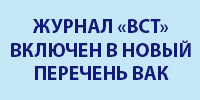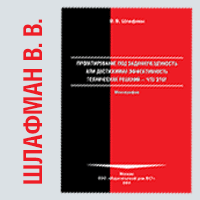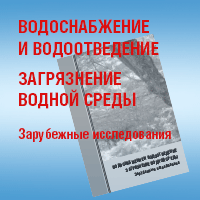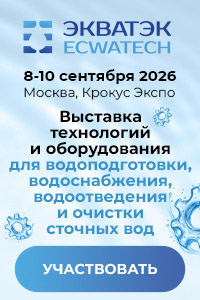Ethical Guidelines
Papers must be submitted with the understanding that they have not been published elsewhere (except in the form of an abstract or as part of a published lecture, review, or thesis) and are not currently under consideration by another journal published by or any other publisher. The submitting (Corresponding) author is responsible for ensuring that the article's publication has been approved by all the other coauthors. It is also the authors' responsibility to ensure that the articles emanating from a particular institution are submitted with the approval of the necessary institution. Only an acknowledgment from the editorial office officially establishes the date of receipt. Further correspondence and proofs will be sent to the corresponding author(s) before publication unless otherwise indicated. It is a condition for submission of a paper that the authors permit editing of the paper for readability. All enquiries concerning the publication of accepted papers should be addressed to This email address is being protected from spambots. You need JavaScript enabled to view it.
About Authorship
Authorship is an explicit way of assigning responsibility and giving credit for intellectual work. The two are linked. Authorship practices should be judged by how honestly they reflect actual contributions to the final product. Authorship is important to the reputation, academic promotion, and grant support of the individuals involved as well as to the strength and reputation of their institution.
Disputes sometimes arise about who should be listed as authors of an intellectual product and the order in which they should be listed. When disagreements over authorship arise, they can take a substantial toll on the good will, effectiveness, and reputation of the individuals involved and their academic community. Many such disagreements result from misunderstanding and failed communication among colleagues and might have been prevented by a clear, early understanding of standards for authorship that are shared by the academic community as a whole.
The «Water Supply and Sanitary Technique» Journal do not require all authors of a research paper to sign the letter of submission, nor do impose an order on the list of authors. Submission to The «Water Supply and Sanitary Technique» Journal is taken by the journal to mean that all the listed authors have agreed all of the contents. The corresponding (submitting) author is responsible for having ensured that this agreement has been attained and for managing all communication between the journal and all co-authors, before and after publication. Any change to the authors list after submission, such as a change in the order of the authors or the deletion or addition of authors needs to be approved by a signed letter from every author.
Minimum Requirements for Authorship
All persons designated as authors should qualify for authorship, and all those who qualify should be listed. Each author should have participated sufficiently in the work to take public responsibility for appropriate portions of the content. One or more authors should take responsibility for the integrity of the work as a whole, from inception to published article.
Authorship credit should be based only on:
a) substantial contributions to conception and design, or acquisition of data, or analysis and interpretation of data;
b) final approval of the version to be published.
Conditions a and b must be met. Acquisition of funding, the collection of data, or general supervision of the research group, by themselves, do not justify authorship.
Authors should provide a description of what each contributed, and editors should publish that information. All others who contributed to the work who are not authors should be named in the Acknowledgments, and what they did should be described.
Minimum Requirements for Acknowledgments
List all contributors who do not meet the criteria for authorship, such as a person who provided purely technical help, writing assistance, or a department chair who provided only general support.
Groups of persons who have contributed materially to the paper but whose contributions do not justify authorship may be listed under a heading such as «investigators» or «participating investigators», and their function or contribution should be described, e.g., «served as technical advisors», «critically reviewed the study proposal», «collected data», or «provided and cared for study». All persons must have given written permission to be acknowledged.
Coauthor contributions
Authors are strongly encouraged to include a statement in the end notes to specify the actual contribution of each coauthor to the completed work. The «Water Supply and Sanitary Technique» Journal allows two coauthors to be specified as having contributed equally to the work being described.
About Peer-Review
The «Water Supply and Sanitary Technique» Journal aims at rapid publication of high quality research while maintaining rigorous but sympathetic peer review process. Manuscripts (other than those that are of insufficient quality or unlikely to be competitive enough for publication) will be peer-reviewed by two or more experts in the fields, and a decision is returned to the authors in about one month. If due to special circumstance, the review process takes more time, authors will be informed by email. Manuscripts with significant results will be reviewed and published at the highest priority and speed. Possible decisions on a manuscript are:
• accepted as it is;
• accepted after minor revision;
• accepted after major revision;
• rejected.
If minor revision is required, authors should return a revised version as soon as possible within 15 days. If major revision is required, authors should return a revised version within 25 days.
About Duplicate publication
Material submitted to The «Water Supply and Sanitary Technique» Journal must be original and not published or submitted for publication elsewhere. Authors submitting a contribution to The «Water Supply and Sanitary Technique» Journal who have related material under consideration or in press elsewhere should upload a clearly marked copy at the time of submission and draw the editor's attention to it in their cover letter. If a part of a contribution that an author wishes to submit to The «Water Supply and Sanitary Technique» Journal has appeared or will appear elsewhere, the author must specify the details in the cover letter. Consideration by The "Water Supply and Sanitary Technique" Journal is possible if the main result, conclusion, or implications are not apparent from the other work, or if there are other factors, for example if the other work is published in a language other than English.
Author is responsible to get permission from previous publisher or copyright holder if an author is re-using any part of paper (i.e. figure or figures) published elsewhere, or that is copyrighted.
The editors consider all material in good faith that their journals have full permission to publish every part of the submitted material including illustrations.
About Plagiarism
Plagiarism is the use or close imitation of the language and ideas of another author and representation of them as one's own original work. Duplicate publication, sometimes called self-plagiarism, occurs when an author reuses substantial parts of his or her own published work without providing the appropriate references. This can range from getting an identical paper published in multiple journals, where authors add small amounts of new data to a previous paper.
Plagiarism can be said to have clearly occurred when large chunks of text have been cut and pasted. Such manuscripts would not be considered for publication in Journals. But minor plagiarism without dishonest intent is relatively frequent, for example when an author reuses parts of an introduction from an earlier paper. The editors will judge any case of which they become aware (either by their own knowledge of and reading about the literature, or when alerted by referees) on its own merits.
If a case of plagiarism comes to light after a paper is published in The «Water Supply and Sanitary Technique» Journal, the journal will conduct a preliminary investigation. Depending on the extent of the plagiarism, the paper may also be formally retracted.
Prior Publication
Material published by the author before submission in the following categories is considered prior publication: 1) articles published in any publication, even online-only, non-peer-reviewed publications 2) articles, book chapters, and long abstracts containing original data in figures and tables, especially in proceedings publications as well as posters containing original data disseminated beyond meeting attendees, e.g., displayed in websites; 3) widely circulated, copyrighted, or archival reports, such as the technical reports.
Doctoral dissertations that are made available in data bases or institutional repositories are not considered prior publication. Data portions of submitted papers that have appeared on a website will be permitted, with the proviso that the author informs the Editor at the time of the submission that such material exists so that the Editor can determine the suitability of such material for publication. Failure to do so will result in an automatic rejection of the manuscript.
Authors with concerns about possible prior publication that does not fall clearly into one of these categories should contact the Editorial Office of The «Water Supply and Sanitary Technique» Journal and forward the material for examination.
Once you have submitted your manuscript to The «Water Supply and Sanitary Technique» Journal, we ask that you not subsequently post this manuscript, or a revised version of it, to a preprint server. However, if the manuscript receives a final reject decision at The «Water Supply and Sanitary Technique» Journal or if it is withdrawn from editorial consideration at The «Water Supply and Sanitary Technique» Journal, this restriction is then lifted.
Ethical Procedure
Reviewers have a responsibility to report suspected duplicate publication, fraud, or plagiarism to the Editor. A reviewer may recognize and report that he/she is refereeing, or has recently refereed, a similar or identical paper for another journal by the same author(s). Readers may report that they have seen the same article elsewhere, or authors may see their own published work being plagiarized. In all cases we address ethical concerns diligently following an issue-specific standard practice as summarized below.
The first action of the journal Editor is to inform the Editorial Office on the opinion of the reviewer by supplying copies of 1) the relevant material and 2) a draft letter to the corresponding author asking for an explanation in a nonjudgmental manner. The Editorial Office must approve any correspondence before it is sent to the author. If the author's explanations are unacceptable and it seems that serious unethical conduct has taken place, the paper is rejected.
If the infraction is less severe, the Editor-in-Chief sends the author a letter of reprimand and reminds the author of publication policies; if the manuscript has been published, the Editor-in-Chief may require the author to publish an apology in the journal to correct the record. If, through the author's actions the copyrights of another journal have been violated, the Editor-in-Chief writes a letter of apology to the other journal.
In serious cases of fraud that result in retraction of the article, a retraction notice will be published in the journal and will be linked to the article in the online version. The online version will also be marked «retracted» with the retraction date.
Responsibilities of reviewers
Reviewers prepare reviews of journal articles on voluntary basis. Reviewers have the right to decline at their own convenience the invitation to review a certain article, including manuscripts about which they do not feel competent to provide a review. Reviewers shall submit their reviews within one month.
The information or ideas gained by the reviewers in the process of peer review of articles shall be considered confidential and not subject to be used intuitu personae. Peer review shall be objective and clear with specific arguments and suggestions on the article revision, even in case they consider the manuscript cannot be published.
Reviewers in their reviews shall define the availability of all authors of the article under reviewing as well as the availability of all references to the prior publications on the topic of the article under reviewing. They shall define possible plagiarism or duplications of the research data presented earlier by the author and draw the attention of the Editor-in-Chief to any significant analogies between the article evaluated and other publications and documents they know about, and to any problems that can arise in relation to the ethical eligibility of the research described in the article under reviewing.
Responsibilities of the editors
Editor-in-Chief of the journal is governed by the policy of the journal.
Editor-in-Chief can consult other members of the editorial board as well as with the reviewers when making a decision on the article publication. He promotes observing «blind» reviewing of the articles. The editorial board and Editor-in-Chief aim at close cooperation with scientific and research organizations in accordance with recommendations on cooperation between research institutions and the journal.






